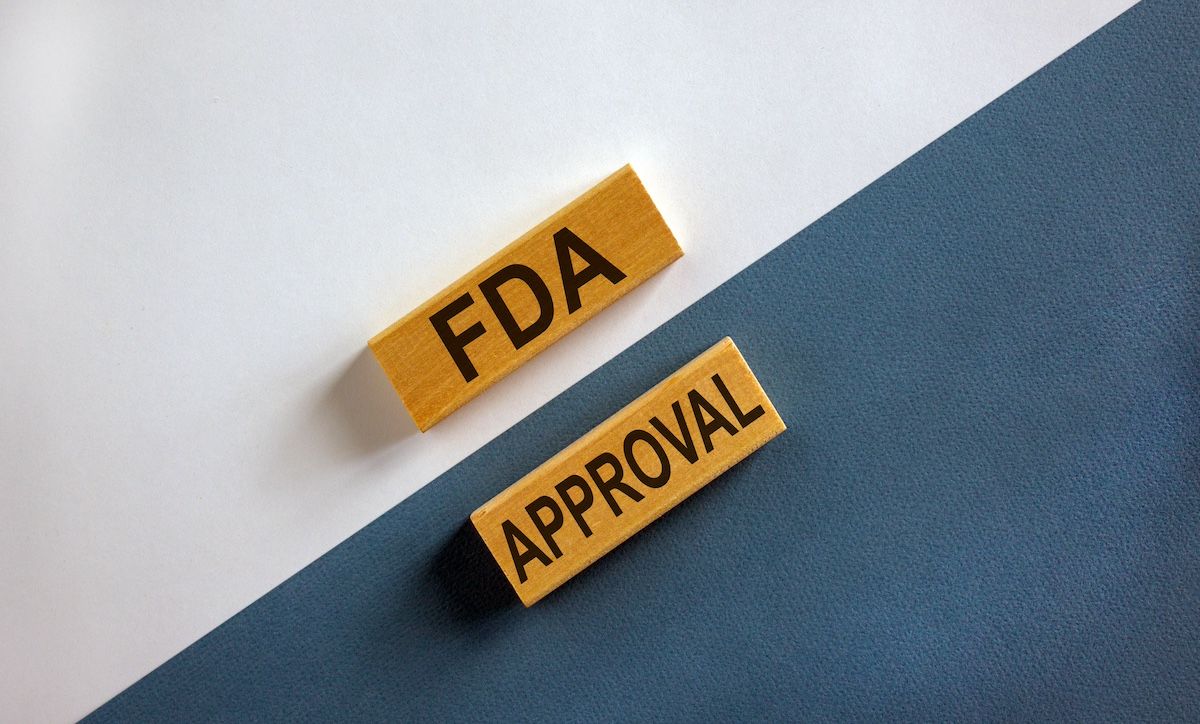- Center on Health Equity & Access
- Clinical
- Health Care Cost
- Health Care Delivery
- Insurance
- Policy
- Technology
- Value-Based Care
FDA Approves FoundationOne Liquid CDx as a Diagnostic Tool for BRCA-Mutated mCRPC
FoundationOne Liquid CDx can be used to identify niraparib and abiraterone acetate eligibility in patients with metastatic castration-resistant prostate cancer (mCRPC).
This article originally appeared on the Pharmacy Times® website.
FoundationOne Liquid CDx can be used to identify niraparib and abiraterone acetate eligibility in patients with metastatic castration-resistant prostate cancer.
Image credit: Dzmitry - stock.adobe.com

The FDA granted a liquid biopsy test (FoundationOne Liquid CDx; Foundation Medicine, Inc) for use in addition to a tissue biopsy test (FoundationOne CDx) to identify patients with BRCA-mutated metastatic castration-resistant prostate cancer (mCRPC) who may benefit from niraparib and abiraterone acetate (Akeega; Janssen Biotech). The diagnostic tools offer advanced testing capabilities that identify BRCA1 or BRCA2 mutations in patients who have insufficient tumor tissue available for testing, offering them expanded testing opportunities.
According to the American Cancer Society, an estimated 299,010 individuals will be diagnosed with prostate cancer (PC) in 2024 and about 1 in 8 individuals will be diagnosed during their lifetime. The underlying mechanisms that cause PC are unknown, but age, ethnicity, family history, and weight may increase risk of developing the disease.1,2
PC is highly treatable and, in some cases, curable. Approximately 99% of patients diagnosed with localized disease will survive at least 5 years after diagnosis, compared with 32% of patients with metastatic disease.1,2
BRCA1- or BRCA2-mutated mCRPC is a particularly aggressive form of the disease found in approximately 11% of cases. Patients in this population are often more difficult to treat and often face poorer prognoses. BRCA1 and BRCA2 are genes responsible for producing proteins that repair damaged DNA; individuals who inherit harmful variants of these genes have increased risk of cancer.3
Tumor testing is the current standard for identifying patients with BRCA1 and BRCA2 mutations, although not all patients have sufficient tumor tissue available for testing. However, the approval of this liquid biopsy test gives patients an alternative diagnostic tool that requires a simple blood test.4
The liquid biopsy test is a qualitative next generation sequencing in vitro diagnostic test that uses targeted high throughput hybridization-based capture technology to analyze 324 genes utilizing circulating cell-free DNA isolated from plasma derived from anti-coagulated peripheral whole blood of patients with mCRPC. The FDA approved the test to report short variants in over 300 genes as a companion diagnostic test to FoundationOne CDx, a device used for the detection of substitutions, insertion and deletion alterations, and copy number alterations in 324 genes, as well as genomic signatures, including microsatellite instability and tumor mutational burden.4
Patients who are negative for companion diagnostic mutations based on the liquid biopsy test results are recommended to follow up with tumor tissue testing and genomic alteration status confirmed using the tissue biopsy test. Both tests are only available through prescription.4
The FDA approval provides new diagnostic and treatment alternatives for patients with mCRPC who may have BRCA mutations, offering advanced treatment options and the potential for earlier disease intervention.
“We know how challenging it can be to obtain a tissue sample for testing in advanced cancers such as mCRPC, making liquid biopsy an incredibly important tool in a provider’s toolbox for the development of personalized treatment plans for their patients,” Mia Levy, MD, PhD, chief medical officer at Foundation Medicine, said in a press release. “The approval of our liquid biopsy test, along with the previous approval for our tissue biopsy test, will enable more patients to access this important therapy option. Additionally, with the ability to leverage a liquid-based test and reflex to a tissue-based test if needed, health care providers can feel confident they have accurate genomic information at their fingertips to guide treatment decisions for patients.”4
REFERENCES
- Key statistics for prostate cancer. American Cancer Society. January 19, 2024. Accessed Jul 2, 2024. https://www.cancer.org/cancer/types/prostate-cancer/about/key-statistics.html
- What is prostate cancer? Urology Care Foundation. August 2018. Accessed July 2, 2024. https://www.urologyhealth.org/urology-a-z/p/prostate-cancer
- BRCA gene mutations: cancer risk and genetic testing. National Cancer Institute. November 9, 2020. Accessed July 2, 2024. https://www.cancer.gov/about-cancer/causes-prevention/genetics/brca-fact-sheet
- U.S. food and drug administration (fda) approves Foundationone®Liquid CDx as a companion diagnostic for AKEEGA® (niraparib and abiraterone acetate) for patients with BRCA-positive metastatic castration-resistant prostate cancer. Business Wire. July 1, 2024. Accessed July 2, 2024. https://www.businesswire.com/news/home/20240701807541/en
